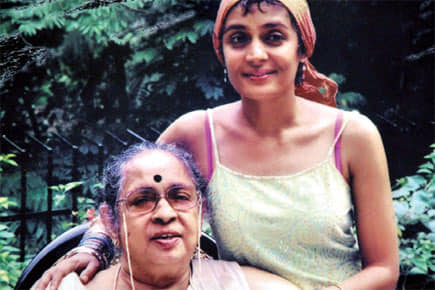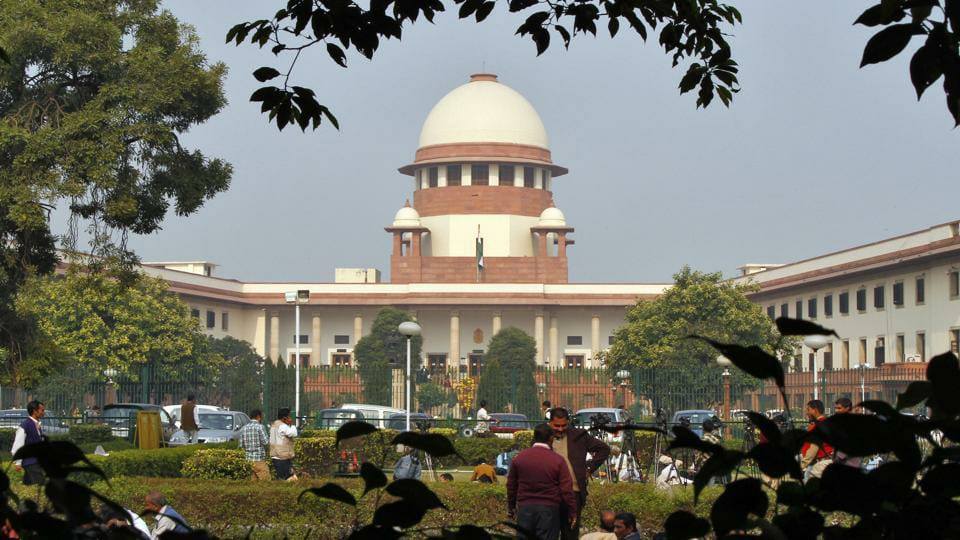In 1986, Mary Roy’s Legal Battle Ensured All Daughters Got Justice in India
What's important to make note of is that the court said that it is not necessary for the father coparcener to have been alive at the time of the 2005 Amendment.

The Supreme Court on Tuesday (11 August 2020) reaffirmed the equal rights of daughters on their father’s property. The three-judge Bench stated that even if their father died before the Hindu Succession (Amendment) Act 2005 came into force, the right remains.
Justice Arun Mishra, while reading out the operative part of the judgement in the matter of Vineeta Sharma v. Rakesh Sharma, said, “Daughters have to be given equal share of coparcenary rights in share of property like the son.”
A coparcener is a person who assumes a legal right in his or her ancestral property by birth.
One of the earliest cases in this fight for gender equality began in the year 1960. Mary Roy, an educator, and activist from Kerala fought a long and hard battle for almost 39 years against her brother, George Issac, to have equal rights to the property her late father had left behind.
Mary won the case which became a landmark judgment that many lawyers quote in property dispute cases. Also, she paved the way for Indian women’s successions rights.
The Case Of Mary Roy

Mary Roy was a passionate advocate for women’s rights and the founder of the Pallikoodam School in Kottayam, Kerala.
On 24 February 1986 Mary won a long-standing legal battle for equal rights over the property of her father, a Syrian Catholic. Up until she challenged the Travancore Act, the following rules were applicable:
- A widow who returned to her parental home could enjoy the ancestral property until she died or remarried.
- If a man did not leave behind a will specifying a share of his personal property for a daughter, the daughter wouldn’t be entitled to a share of that property. She would, however, be entitled to one-fourth of the value of the share of the son or Rs 5,000, whichever was less.
Since Mary’s father died without having left behind a will, she approached the courts. Mary sought an end to the centuries-old practice of the Syrian Christian community, which bequeathed only a minor portion of the family property to women members, under the Travancore Syrian Christian Succession Act, 1916 and Cochin Succession Act 1921.
“This was a fight that I began 50 years ago. When my father died in 1960, I was staying in a small cottage owned by the family in Ooty (Udhagamandalam) with my two small children. I was asked to vacate the cottage after his death,” said Mary.
At the time of the Supreme Court verdict, Roy also said, “I am relieved that my long struggle for justice has yielded results. My battle was not for a piece of property alone but to ensure that women in this country enjoy the rights guaranteed by the Constitution.” She won the lawsuit which ensured her equal rights to the familial property.
About the 2020 judgement

The Bench comprising Justice Mishra, Justice Abdul Nazeer and Justice MR Shah was hearing a batch of appeals that raised an important legal issue of the retrospective effect of the Hindu Succession (Amendment) Act, 2005, which gave equal rights to daughters in ancestral property.
Justice Mishra observed, “Daughters must be given equal rights as sons, daughter remains a loving daughter throughout life. The daughter shall remain a coparcener throughout life, irrespective of whether her father is alive or not.”
The court held that a daughter gains her coparcenary right at the time of her birth “in her own right” in the same way a son gains his right. Hence, even though the legislation was enacted only in 2005, it grants the rights to all daughters, regardless of whether they were born before or after 2005.
Given that the daughters gain their inheritance rights by birth, it also renders irrelevant the point of whether the father was alive or not in 2005.
In 2016, the apex court had ruled in the Prakash v Phulwati case that such a right will not be applied in a retrospective manner. In 2018, in the Danamma v Amar case another Bench of the Supreme Court held that the 2005 amendment can be applied retrospectively.
This recent decision of the Apex Court clarifies whether or not it will have a retrospective effect.
Salient features of the recent judgement
- The Court has stressed that the coparcenary rights are acquired by a daughter at birth regardless of whether the daughter was born before or after the amendment to the 2005 Act was effected.
- It is not necessary for the father coparcener to have been alive at the time of the 2005 Amendment, the Court has further clarified.
If you wish to read the entire judgement, you can click here to access it.
(Edited by Saiqua Sultan)
If you found our stories insightful, informative, or even just enjoyable, we invite you to consider making a voluntary payment to support the work we do at The Better India. Your contribution helps us continue producing quality content that educates, inspires, and drives positive change.
Choose one of the payment options below for your contribution-
By paying for the stories you value, you directly contribute to sustaining our efforts focused on making a difference in the world. Together, let’s ensure that impactful stories continue to be told and shared, enriching lives and communities alike.
Thank you for your support. Here are some frequently asked questions you might find helpful to know why you are contributing?


This story made me
-
97
-
121
-
89
-
167













